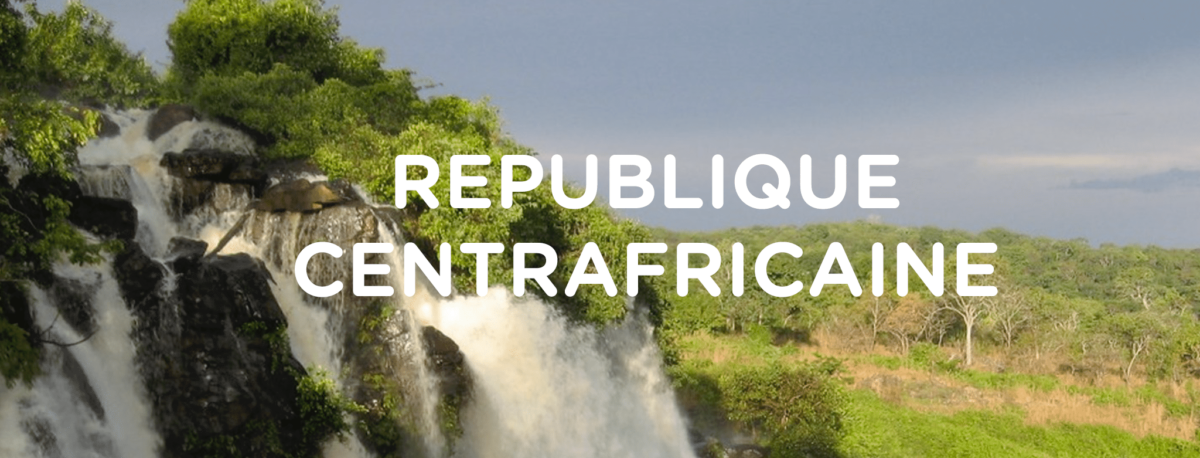|
| |
Les opérations de « rapatriements volontaires » des réfugiés centrafricains coordonnées entre le Haut-Commissariat des Nations Unies pour les Réfugiés (HCR), le Cameroun et la République Centrafricaine ont repris ce mois. Un grand de nombre de réfugiés centrafricains souhaitent regagner leur pays mais plusieurs d’entre eux estiment que la situation sécuritaire dans leur région d’origine demeure préoccupante. Alors que le HCR, le Cameroun et la RCA projettent de rapatrier 2500 réfugiés supplémentaires, les besoins humanitaire à l’intérieur de la RCA demeurent élevés avec près de 63% de la population dans le besoin d’une assistance selon le bureau local de l’Organisation des Nations Unies pour la Coordination des Affaires Humanitaires (OCHA) en Centrafrique. Malgré la poursuite de la lutte armée par plusieurs groupes rebelles, le travail de reconstruction est lancé dans plusieurs communes touchées par plusieurs années de guerre. Les mouvements religieux poursuivent leur engagement en faveur de la cohésion sociale. Ils créent des espaces de dialogues et participent aux cadres de réflexions créés par d’autres acteurs (nationaux et internationaux pour la paix et la réconciliation.
“Voluntary repatriation” operations for Central African refugees coordinated between the United Nations High Commission for Refugees (UNHCR), Cameroon and the Central African Republic resumed this month. A large number of Central African refugees wish to return to their country, but many of them believe that the security situation in their region of origin remains worrying. While UNHCR, Cameroon and CAR plan to repatriate an additional 2,500 refugees, humanitarian needs inside CAR remain high with nearly 63% of the population in need of assistance according to the local office of United Nations Organization for the Coordination of Humanitarian Affairs (OCHA) in the Central African Republic. Despite the continuation of the armed struggle by several rebel groups, reconstruction work has been launched in municipalities affected by several years of war. Religious movements still commited to social cohesion. They create spaces for dialogue and participate in reflection frameworks created by other (national and international) actors for peace and reconciliation.
|
|
|
|
| |
L'info phare - Source médiatique |
|
|
|
| |
|
Retour volontaire de près de 300 réfugiés centrafricains
En milieu de semaine dernière, 299 réfugiés centrafricains [chiffres rapportés par le site d’information Cameroun Actu] des sites de Gado et Lolo dans la région de l’Est du Cameroun retournaient en Centrafrique après plusieurs années passées au Cameroun. Des opérations de « rapatriement volontaire » des réfugiés centrafricains sont coordonnées par le Cameroun et le Haut-Commissariat des Nations Unies pour les Réfugiés (HCR). Le Cameroun accueille le plus grand nombre de réfugiés centrafricains mais depuis le début de l’année, près de 1200 d’entre eux sont rentrés en Centrafrique. 2500 candidats au retour volontaire ont également été enregistrés par les bureaux du HCR à Batouri, Meiganga et Djohong.
|
|
Voluntary return of nearly 300 Central African refugees
In the middle of last week, 299 Central African refugees [figures reported by the Cameroon Actu information site] from the Gado and Lolo sites in the East region of Cameroon returned to the Central African Republic after several years in Cameroon. “Voluntary repatriation” operations for Central African refugees are coordinated by Cameroon and the United Nations High Commissioner for Refugees (UNHCR). Cameroon hosts the largest number of Central African refugees, but since the beginning of the year, nearly 1,200 of them have returned to the Central African Republic. 2,500 candidates for voluntary return have also been registered by the UNHCR offices in Batouri, Meiganga and Djohong.
|
|
|
|
|
|
| |
|
Selon les Nations Unies, près de 63% des populations dépendent de l’aide Humanitaire
Selon un communiqué attribué au bureau des Nations Unies pour la Coordination des Affaires Humanitaires et repris par XinhuaNews, « 3,1 millions de personnes, soit environ 63% de la population centrafricaine, avaient besoin d'aide humanitaire ». Commémorant la journée internationale de l’aide humanitaire, le coordonnateur humanitaire par intérim en Centrafrique souligne que la persistance des violations des droits des hommes et du droit international humanitaire accroit les déplacements de personnes à l’intérieur du pays. Dans ce contexte, les récentes pénuries de carburant, la poursuite des conflits armés et la menace des mines limitent les mouvements des acteurs humanitaires sur le terrain.
|
According to the United Nations, nearly 63% of the population depends on humanitarian aid
According to a statement attributed to the United Nations Office for the Coordination of Humanitarian Affairs and taken up by XinhuaNews, "3.1 million people, or about 63% of the Central African population, were in need of humanitarian assistance". Commemorating the International Day of Humanitarian Aid, the Acting Humanitarian Coordinator in the Central African Republic stresses that the persistence of violations of human rights and international humanitarian law is increasing the displacement of people within the country. In this context, recent fuel shortages, the continuation of armed conflicts and the threat of mines limit the movements of humanitarian actors in the field.
|
|
|
|
|
|
| |
|
Humanitaire, un métier à risque en Centrafrique
Les acteurs humanitaires sont pris pour cibles dans plusieurs régions de la Centrafrique encore contrôlées par des groupes rebelles. L’enlèvement des humanitaires semble s’inscrire dans la nouvelle stratégie de mobilisation des ressources employées par les groupes armés actifs dans le pays. Alors que la croissance des actes de violence impliquant des acteurs humanitaires nourrit des inquiétudes la nouvelle de l’enlèvement de 11 employés d’une organisation non gouvernementale intervenant à l’Est du pays témoigne que la prise d’otages « est une nouvelle stratégie des groupes armés en vue de s'enrichir et pour financer leurs campagnes militaires ».
|
Humanitarian, a risky profession in the Central African Republic
Humanitarian actors are targeted in several regions of the Central African Republic still controlled by rebel groups. The kidnapping of humanitarians seems to be part of the new resource mobilization strategy employed by the armed groups active in the country. While the increase in acts of violence involving humanitarian actors is fuelling concern, the news of the kidnapping of 11 employees of a non-governmental organization operating in the east of the country testifies that the taking of hostages "is a new strategy for armed groups with a view to enriching themselves and to finance their military campaigns".
|
|
|
|
|
|
| |
Pour soutenir la restauration de l’autorité d l’État, la MINUSCA construit et reconstruit des édifices publics
La Mission Multidimensionnelle Intégrée des Nations Unies pour la stabilisation en Centrafrique met en œuvre des projets à impact rapide avec pour objectif de contribuer à la restauration de l’autorité de l’État et de favoriser le dialogue communautaire. Dans les communes les plus touchées par les conflits armés des bureaux locaux soutiennent la construction des édifices publics et la réhabilitation de celles détruites pendant les années de guerre.
|
To support the restoration of State authority, MINUSCA builds and rebuilds public buildings
The United Nations Multidimensional Integrated Stabilization Mission in the Central African Republic implements quick impact projects with the objective of contributing to the restoration of State authority and fostering community dialogue. In the municipalities most affected by armed conflicts, local offices support the construction of public buildings and the rehabilitation of those destroyed during the war years.
|
|
|
|
|
|
| |
Coopération interreligieuse, un défi en Afrique selon le Cardinal Nzapalainga
Organisé depuis 1980, le Meeting de Rimini est une rencontre annuelle de leaders catholiques (politiques et religieux) pour promouvoir la coexistence pacifique et la fraternité. Participant à l’édition 2022 en cours, l’archevêque de Bangui engagé dans la promotion du dialogue interreligieux en Centrafrique souligne qu’ « en Afrique, les religions ont le défi de se retrouver pour dire que les religions ne divisent pas mais rassemblent ».
|
|
Interreligious cooperation, a challenge in Africa according to Cardinal Nzapalainga
Organized since 1980, the Meeting of Rimini is an annual meeting of Catholic leaders (political and religious) to promote peaceful coexistence and fraternity. Participating in the current 2022 edition, the Archbishop of Bangui committed to the promotion of interreligious dialogue in the Central African Republic underlines that "in Africa, religions have the challenge of coming together to say that religions do not divide but unite".
|
|
|
|
|
|
| |
Catholiques, protestants et musulmans centrafricains cheminent ensemble pour la paix en Centrafrique
En 2013, l’instrumentalisation de la diversité religieuse a permis de nourrir la violence intercommunautaire dans plusieurs régions du pays. Au lendemain de ces actes de violence, des initiatives interreligieuses rassemblent les leaders des communautés catholique, protestante et musulmane pour porter le discours de l’apaisement au sein de la population. Les mouvements religieux participent à d’autres cadres de dialogues et jouent pleinement leur rôle de sentinelle en Centrafrique.
|
|
Central African Catholics, Protestants and Muslims walk together for peace in the Central African Republic
In 2013, the instrumentalization of religious diversity fuelled inter-community violence in several regions of the country. In the aftermath of these acts of violence, inter-religious initiatives bring together leaders of the Catholic, Protestant and Muslim communities to bring the message of appeasement to the population. Religious movements participate in other dialogue frameworks and fully play their role as sentinels in the Central African Republic.
|
|
|
|
|
|
| |
|
La faiblesse des États aggrave l’insécurité selon les Nations Unies
Cristina Duarte, Secrétaire générale adjointe et Conseillère spéciale du Secrétaire général pour l’Afrique estime que des « facteurs internes » (corruption, pauvreté, inégalités, violations des droits humains) interagissent avec des « facteurs externes » d’instabilité (compétition pour les ressources naturelles, criminalité transnationale, prolifération des armes illicites) pour aggraver les crises en Afrique. Alors que les faibles perspectives économiques et l’absence de l’Etat dans certaines régions favorisent le développement des groupes radicaux et l’extrémisme violent sur le continent, les perspectives de collaboration avec les institutions onusiennes s’élargissent avec la Commission de consolidation de la paix.
|
The weakness of States aggravates insecurity according to the United Nations
Cristina Duarte, Under-Secretary-General and Special Adviser to the Secretary-General for Africa believes that "internal factors" (corruption, poverty, inequality, human rights violations) interact with "external factors" of instability (competition for resources natural resources, transnational crime, proliferation of illicit weapons) to aggravate crises in Africa. While the weak economic prospects and the absence of the State in certain regions encourage the development of radical groups and violent extremism on the continent, the prospects for collaboration with the United Nations institutions are widening with the Commission for the Consolidation of the peace.
|
|
|
|
|
|
| |
Ce bulletin de veille est réalisé par l’Observatoire Pharos, observatoire du pluralisme des cultures et des religions, dans le cadre du projet de Jumelage entre initiatives de lutte contre la désinformation avec Adisi-Cameroun et le Consortium des Journalistes centrafricains de lutte contre la désinformation (CJCLD) avec le soutien de l'Organisation internationale de la Francophonie. Il rassemble des informations, analyses et déclarations qui ne reflètent pas systématiquement la perception de la situation par l’Observatoire Pharos, mais qui constituent des documents à intégrer dans l’analyse. Les destinataires, partenaires de l’Observatoire Pharos, sont invités à contribuer à la qualité de cette veille par le partage de toutes informations utiles et diffusables.
|
|
|
|
| |
|
Avec le soutien de l'Organisation Internationale de la Francophonie
|
|
|
|
|
|





